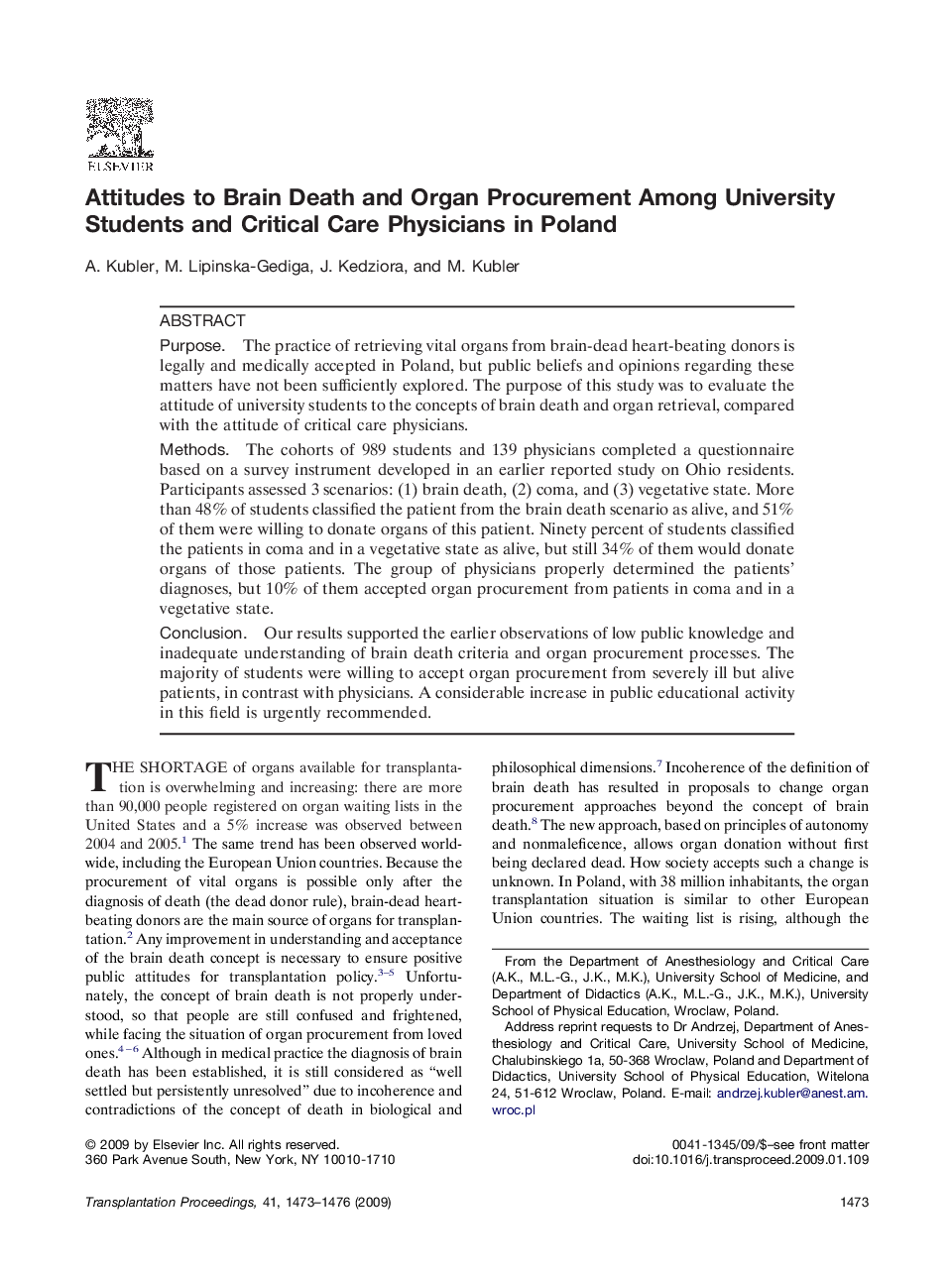| Article ID | Journal | Published Year | Pages | File Type |
|---|---|---|---|---|
| 4259217 | Transplantation Proceedings | 2009 | 4 Pages |
PurposeThe practice of retrieving vital organs from brain-dead heart-beating donors is legally and medically accepted in Poland, but public beliefs and opinions regarding these matters have not been sufficiently explored. The purpose of this study was to evaluate the attitude of university students to the concepts of brain death and organ retrieval, compared with the attitude of critical care physicians.MethodsThe cohorts of 989 students and 139 physicians completed a questionnaire based on a survey instrument developed in an earlier reported study on Ohio residents. Participants assessed 3 scenarios: (1) brain death, (2) coma, and (3) vegetative state. More than 48% of students classified the patient from the brain death scenario as alive, and 51% of them were willing to donate organs of this patient. Ninety percent of students classified the patients in coma and in a vegetative state as alive, but still 34% of them would donate organs of those patients. The group of physicians properly determined the patients' diagnoses, but 10% of them accepted organ procurement from patients in coma and in a vegetative state.ConclusionOur results supported the earlier observations of low public knowledge and inadequate understanding of brain death criteria and organ procurement processes. The majority of students were willing to accept organ procurement from severely ill but alive patients, in contrast with physicians. A considerable increase in public educational activity in this field is urgently recommended.
